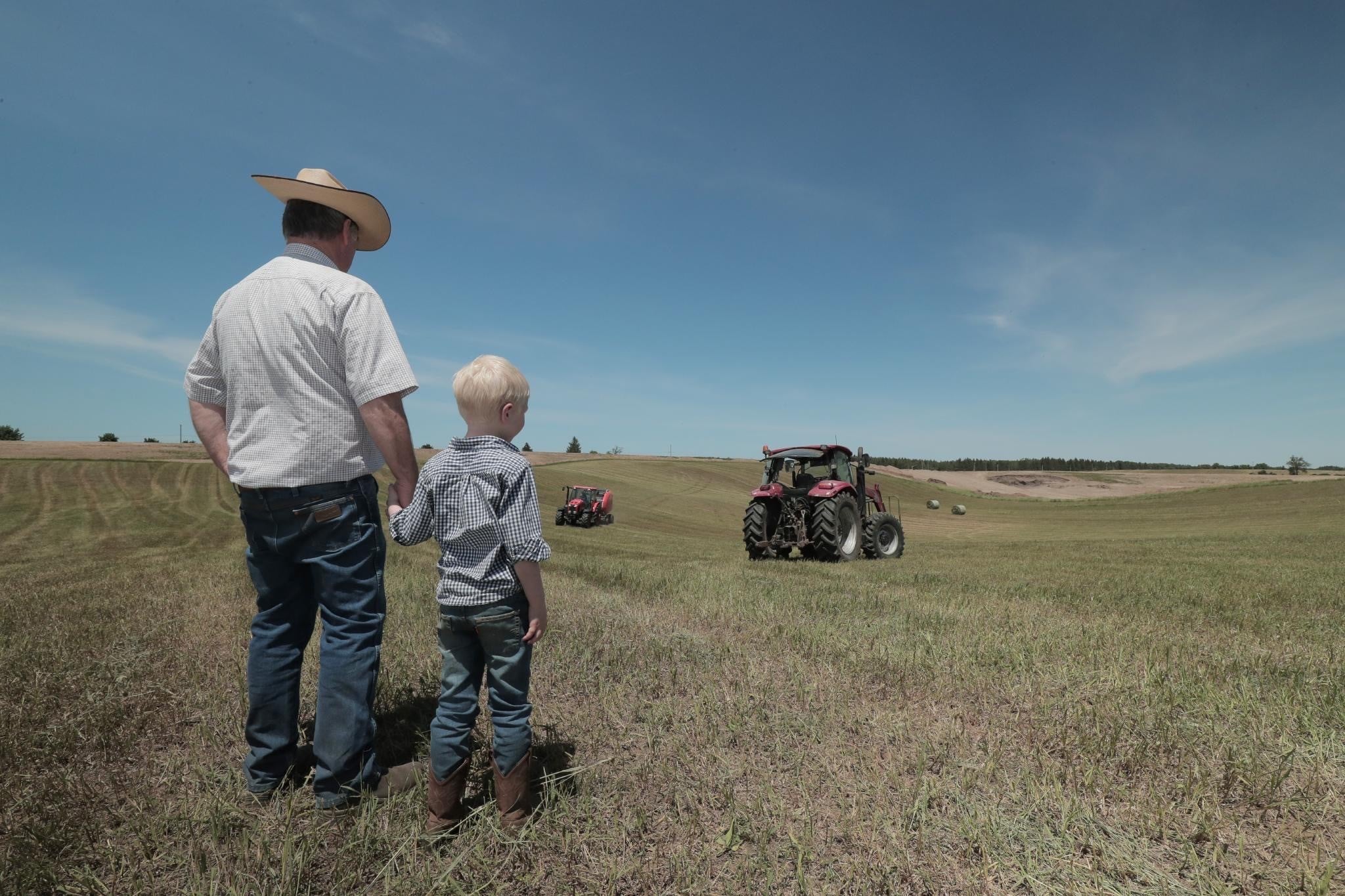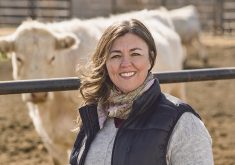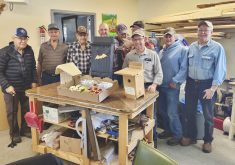It’s so like farming. When you’re at the starting line of a major marathon, everyone around you is there to run too. They’re all focused on the same thing that you’re focused on, just like when you’re a farmer, most of the people you know are also farmers, dealing with exactly what you’re also dealing with.
And here’s another similarity. Over 50,000 runners compete in North America’s major marathons. That’s a big number, but it’s also incredibly small if you think of it in terms of the continent’s total population, just like the one or two per cent of the overall population who are farmers.
In fact, it turns out farming and running have an incredible lot in common, starting with this. There is nothing easy about completing a marathon just as there is nothing easy about being a farmer.
Read Also

Where convention and innovation meet
How one Ontario farm is integrating technology into their beef operation.
Farmers live and breathe their work. For marathon runners it is the same. To prepare for race day they must run 60 to 100 km a week, improving their strength and breathing and developing a resilient, lean body mass.
Runners, like farmers, maintain healthy habits, both physical and mental. They refine their skills; they push themselves to do better. They study the success of others. They think running every day.
Both farming and running take an even stronger mind than body. Runners know every one of the thousand excuses why they should take the day off, but they know they can’t. Even when it means pushing past pain, past discomfort and past fatigue, they drive themselves to the finish line, like farmers.
And then there is the sense of accomplishment, for farmers and runners alike. This is the reason they do it. The habits necessary to endure a marathon are also habits found in the most successful farms because they too will have times when it would just be easier to quit, and when everything around them seems to be telling them to just stop. And they will not even consider it.
Many of us would wonder why anyone would want to run 26.2 miles. But then, why would anyone want to invest thousands, even millions of dollars in growing a crop with no guarantee of success?
Born on a farm and having worked all his life in agriculture and with farmers, Saskatchewan’s Louis Baillargeon is a long-term marathoner. With 38 races under his belt, he’s been running two to three marathons a year for the past 15 years.
Baillargeon remembers the start like yesterday. It probably helps that it’s a kind of Christmas story. “On December 26, 2008 I decided to join a gym to focus on getting back in shape,” he recalls. “At the age of 52, I had lost all focus on being active. I was in a rut.”
“An awful experience”
“I clearly remember my first few days at the gym,” Baillargeon says. “Most of my time was spent on a treadmill. It was an awful experience trying to get back to the reasonable physical condition I once knew. What I found important was to stay with the plan, to lose weight and improve my cardio fitness. From the beginning those were the sole reasons to my exercise plan.”
Then, after a month of working out four to five times a week, he noticed it became a bit easier. Strength started coming back, he lost weight, his lung capacity improved.
“To make it interesting I tracked every run I put in,” he says. It was like a farmer tracking their crops or livestock. “The distance, running speed and time spent in each daily session was logged. In addition, I tracked my weight, heart rate, my total distance run from the beginning … I still maintain that log to this day. The accumulated miles is mind-boggling.”
Baillargeon also met other runners who encouraged him, and after five months of training he thought he would try the Saskatchewan Marathon. “I only ran a half marathon,” he says. “I will never forget how wonderful it felt to come through the finish line.”
That sense of accomplishment convinced him to run his first full marathon in Regina that September. “The training was difficult but with a set plan to run a marathon, the training was of utmost importance and I let nothing interfere with the training schedule. You simply cannot fool your body in running 26.2 miles without proper endurance training.”
It was a struggle. He still had more to learn about nutrition and hydration, and about mental toughness, but that winter he ran again, this time in Phoenix, and he shaved 47 minutes off his time.
Now he could focus on a new goal, to run what many consider the top marathon of all, the Boston Marathon.

Early steps
“Despite all the training nothing can prepare you for having to push another nine miles once you’ve run out of energy,” Baillargeon learned. “This is where mental strength plays the most important part. After running 17 miles and feeling tired, mental strength will carry you through the finish line. You simply cannot let the race beat you. Every single marathon requires it.”
The mediocre results from that first marathon in Regina only encouraged him to plan another marathon in the near future. “I had to prove to myself that I could run a much better time if I learned from my previous mistakes,” he says.
“Four months later I ran my second marathon in Phoenix and I shaved 47 minutes off from my first marathon. In fact I was only four minutes short of a Boston qualifying time. I knew then, that going forward, my aim would be to someday run the most prestigious marathon in the world, the Boston Marathon.”
Qualifying for Boston is a huge goal. It takes dedication, and even with it, not everyone will get there.
Baillargeon will tell you no race is ever easy; no race is ever fun, and every race is painful. And the truth is, when he ran his qualifying run for Boston, he collapsed just short of the finish line.
He hardly knows how, but he could feel people around him, helping him get up, supporting him, edging him across the line.
He was alarmed. He thought, if he got help crossing the line, he’d be disqualified. His time would be thrown out, and he’d have to start all over again.
Happy ending
As I said, this is also something of a Christmas story.
Baillargeon has run Boston six times now.
Sometimes he says, it’s like how in farming you need a little help to get to the finish line. And sometimes as in farming it’s all about refusing to quit and finding a way to keep putting one foot in front of the other, time and time again.
More recently, his wife Darlene decided to commit to running as well, and through proper training and discipline she too has now run many half marathons, and running her first successful marathon in Los Angeles in March 2020. Her mental strength and determination pulled her through the finish line to her own tremendous feeling of accomplishment.
Farming a marathon
Running a marathon and operating a farm, it turns out, are similar.
Both take hard work, commitment, focus and preparation, enhanced goal setting, organizational skills, endurance and discipline in every step.
Both are physical, technica and mental. Farming has more elements for sure, and there’s more variance in seasons than in a race course, and more moving parts are involved in the success of the operation.
But in the end the skills and habits needed to achieve that feeling of accomplishment are a lot alike.
Farming is a journey. The old guys will tell you there will be better and worse years, one or two bumper crops, but every year you will be challenged. When you go up against nature, she is in charge. Weather comes in cycles, good times and bad times both can’t last.
There’s also the mental battle, which marathoners know well, when every nerve insists that you must stop, and when it’s so easy to see the odds that are stacked against you, but you and your mind refuse to quit and you keep finding solutions, which is so like the life that every long-time producer knows a farmer must face.
Endurance is key. But really, the goal that drives you is that you want to remain in the game.
Old farmers know the secret is separating in their mind what they can control from what they cannot. They know that they must balance short- and long-term risk, make the best choices with the most information, complete the work in a timely and efficient manner, respect the resources they manage, and accept what is in the hands of Mother Nature.
Like a marathon, farming is a human journey which will provide experiences that will take you far outside your comfort zone. For both, it will be essential that you be able to thrive in adversity.
The only formula that works is being prepared every year. Winning is being at the start line again, prepared to run the best race, every time.
“What I have learned from running over 1,300 miles of competitions?” Baillargeon asks. “Train to be the best that you can be. This applies to everything that one is involved in. If you stumble, get up. Keep going.” After 2021, it’s clear farmers are still that strong, determined group, he says. They have a passion for what they do and to be the best that they can be. When knocked down by anything that is out of their control they seem to dust themselves off and immediately start looking and planning for next year.
“You can’t get anywhere if you can’t rely on yourself,” says Baillargeon.
“My hat’s off to all who take up the challenge to run a full marathon, and to all those involved in farming who put their heart and soul in doing the best that they can.”















